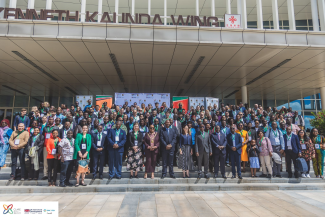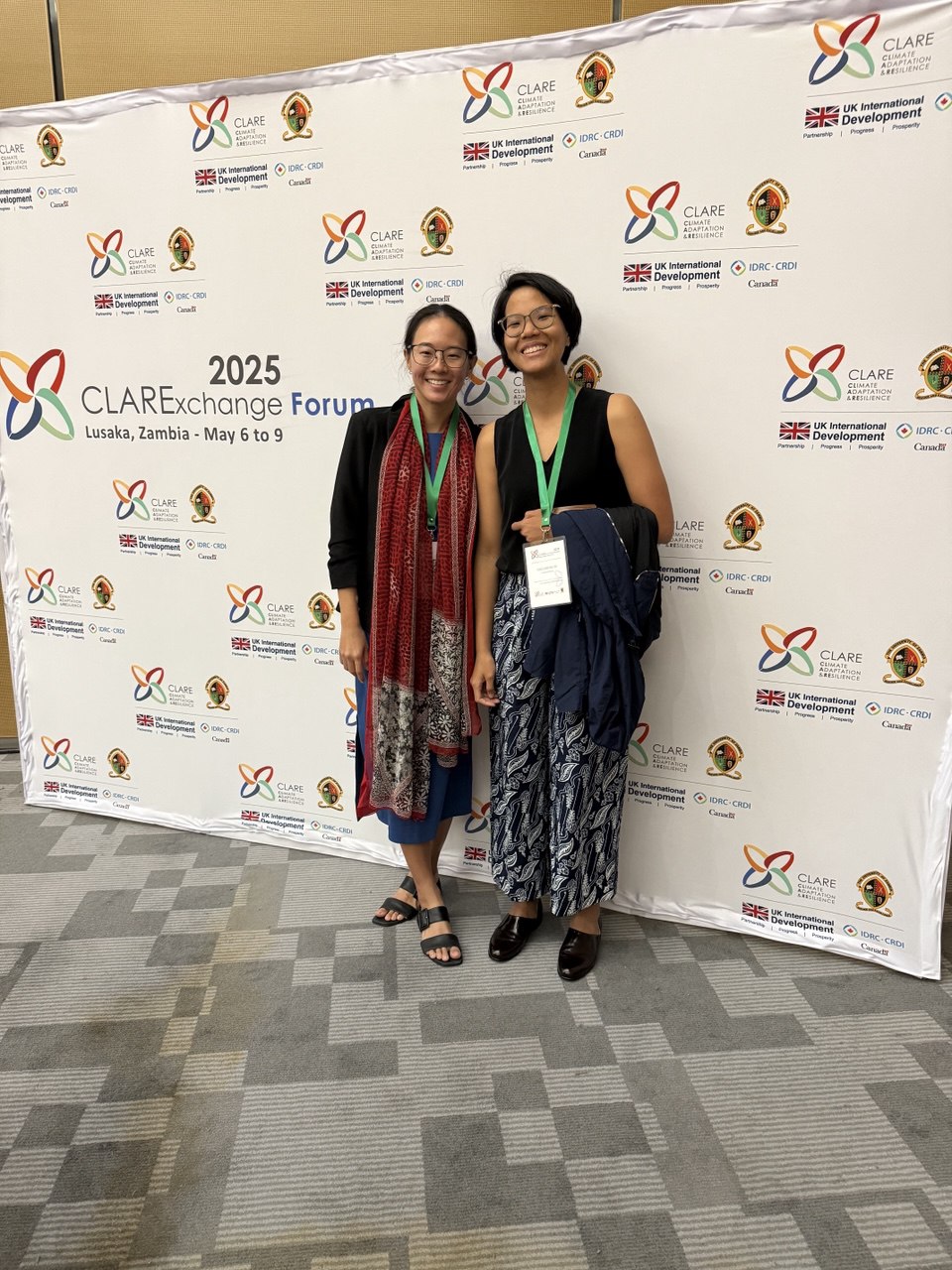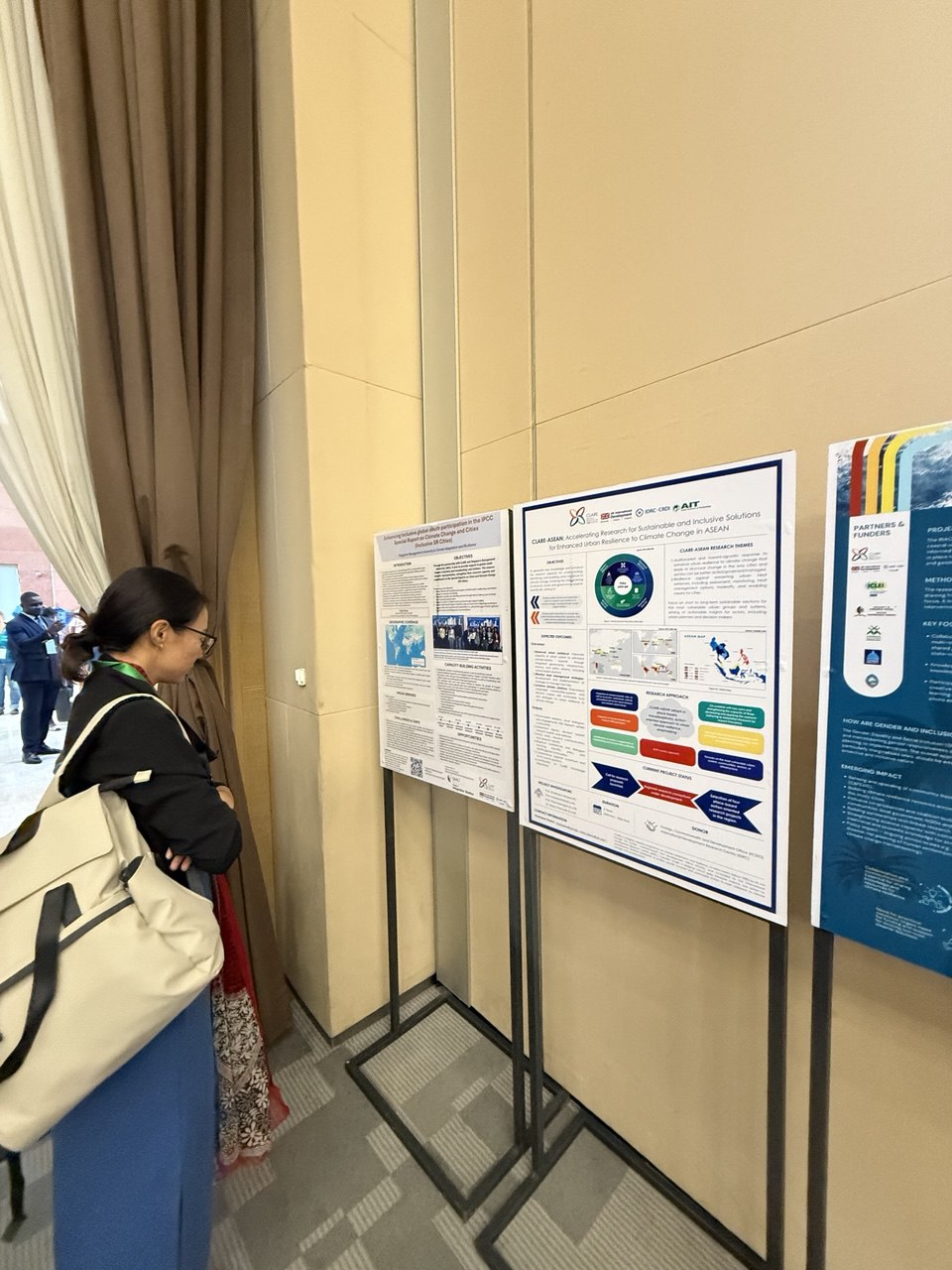
Singapore Management University (SMU) was among the selected institutions spotlighted at the inaugural CLARExchange held in Lusaka, Zambia from 6 to 9 May 2025. Themed "Co-creating CLARE Narratives," the conference served as a key platform for knowledge exchange, peer learning and cross-regional collaboration between researchers, practitioners, and policymakers tackling the frontline challenges of climate change.
Hosted by the Foreign, Commonwealth & Development Office (FCDO), the International Development Research Centre (IDRC), and the University of Zambia, CLARExchange 2025 drew close to 200 participants and showcased more than 30 climate adaptation and resilience (CLARE)-funded projects from Asia-Pacific and Africa. The participants, who hailed from the CLARE (#ClimateAdaptationResilience) international community, leveraged the forum as an inclusive space for peer learning, collaboration and knowledge exchange among diverse individuals and institutions involved in CLARE-supported projects.
Representing SMU was a team leading the project, “Enhancing Inclusive Global South Participation in the IPCC Special Report on Climate Change and Cities.” Launched just three months ago, the initiative addresses a pressing gap: ensuring that early-career researchers from developing nations can meaningfully contribute to the forthcoming Intergovernmental Panel on Climate Change (IPCC) special report. The SMU-led programme provides financial, technical, and capacity-building support, including travel funding, IT resources, training in knowledge brokering and data management, and mentorship opportunities and has onboarded 7 chapter scientists contributing to the IPCC.

“Our project aims to directly bridge that gap, equipping young researchers with the tools, networks, and confidence to shape future climate narratives, especially those relevant to urban resilience and vulnerable communities,” said Ms Graces Ching, Project Coordinator from SMU.
Among the diversity of individual projects, the SMU team found value in the wider thematic commonalities across the projects presented, ranging from shared methodologies in community engagement to scalable models for training and data sharing. Participation in CLARExchange sub-groups now allows the team to access toolkits, approaches, and shared resources from more mature projects in the network.
“It was powerful to see how complementary our goals are,” commented Ms Ching “There’s clear potential to learn from the capacity-building frameworks of other projects and explore how we can further collaborate.”
As the CLARE programme looks to institutionalise CLARExchange as an annual convening, SMU’s presence at the event marked a strategic step forward in expanding its footprint in global climate policy dialogue. With the traction and network gained from the four-day CLARExchange conference, SMU’s project is making steady strides into its next phase of designing high-impact, regionally relevant training programmes and contributing substantively to the IPCC’s Special Report on Climate Change and Cities.

“This experience has reaffirmed our belief that the future of climate adaptation research lies in collaboration, not competition. We left Zambia with renewed resolve, and a growing network of partners equally committed to ensuring that Global South perspectives shape global climate futures,” said Ms Ching.
Photo credit: SMU IPCC TSU Working Group II